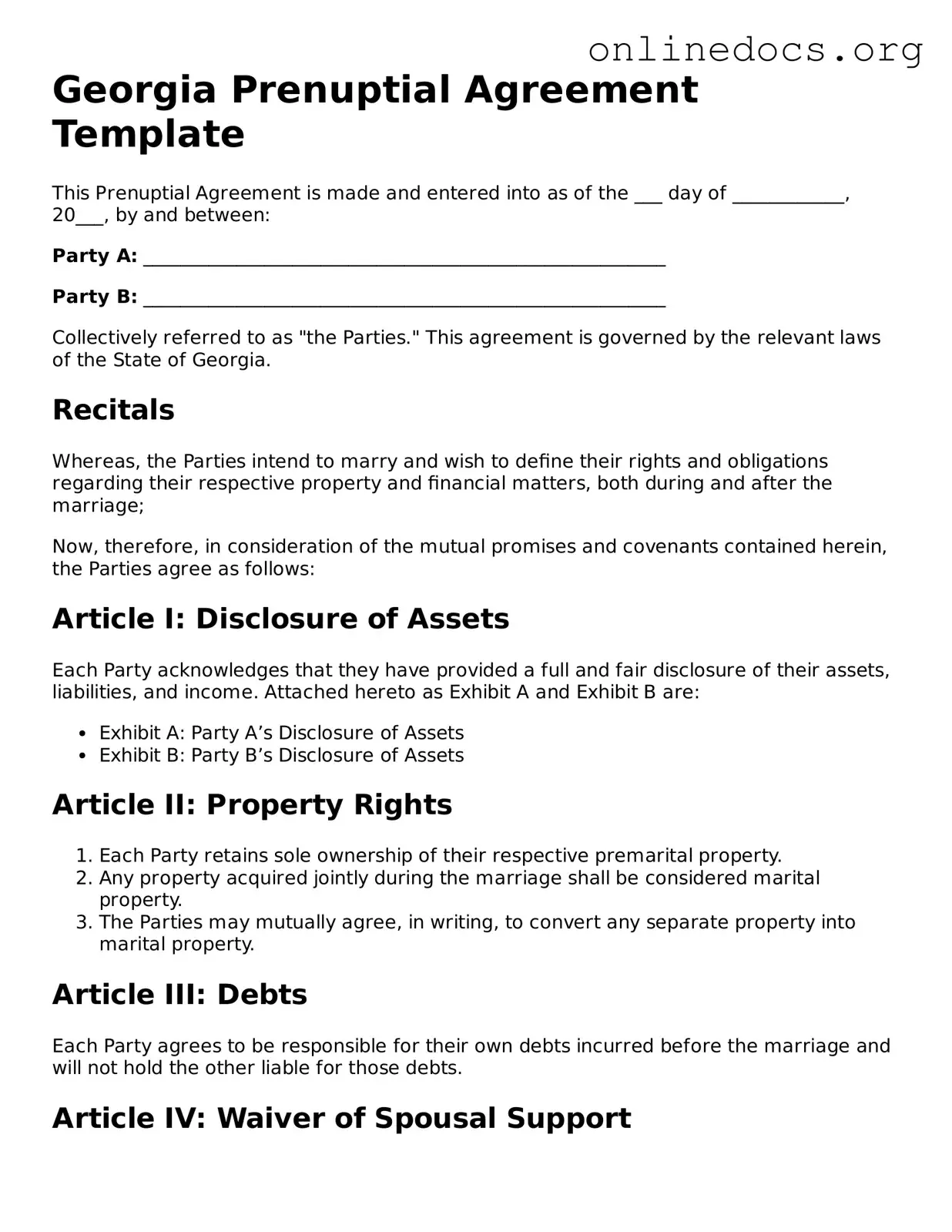The Georgia Prenuptial Agreement form is similar to a Cohabitation Agreement. A Cohabitation Agreement is designed for couples who choose to live together without marrying. Like a prenuptial agreement, it outlines the rights and responsibilities of each partner regarding property and finances. Both documents aim to protect individual assets and clarify expectations, ensuring that both parties understand their legal standing in the relationship.
Another document comparable to a Prenuptial Agreement is a Postnuptial Agreement. This agreement is created after a couple is married and serves a similar purpose as a prenuptial agreement. It details how assets and debts will be divided in the event of a divorce. Both agreements allow couples to define their financial arrangements and protect their interests, regardless of whether they are entering into the relationship or already married.
A Marital Settlement Agreement also shares similarities with a Prenuptial Agreement. This document is used during divorce proceedings to outline the terms of asset division, child custody, and support. Like a prenuptial agreement, it aims to clarify expectations and protect both parties' interests. While a prenuptial agreement is proactive, a marital settlement agreement is often reactive, addressing issues that arise when a marriage ends.
The Separation Agreement is another document that resembles a Prenuptial Agreement. This agreement is used when couples decide to live apart while still legally married. It outlines how they will handle financial matters, child support, and property division during the separation. Both documents focus on establishing clear terms to prevent misunderstandings and provide a framework for managing the couple's financial responsibilities.
In our increasingly complex societal structure, having a well-drafted Cohabitation Agreement can provide both partners with peace of mind and legal security. Similar to a prenuptial agreement, this document addresses vital issues such as property rights and financial responsibilities, establishing clarity in a relationship. For those seeking an organized approach to living together without marriage, resources like the legalformspdf.com offer valuable insights and tools for creating these essential agreements.
Lastly, a Financial Power of Attorney can be compared to a Prenuptial Agreement. This document allows one person to make financial decisions on behalf of another. While a prenuptial agreement deals with asset division in the event of divorce, a financial power of attorney is about managing finances during a relationship. Both documents emphasize the importance of trust and clarity in financial matters, ensuring that both parties are protected and informed.
